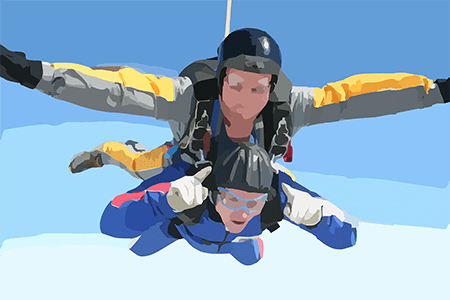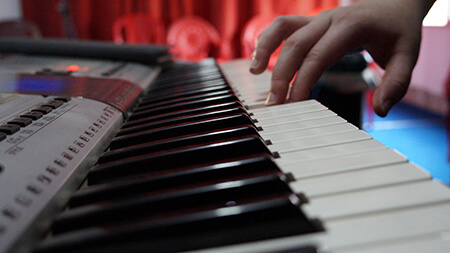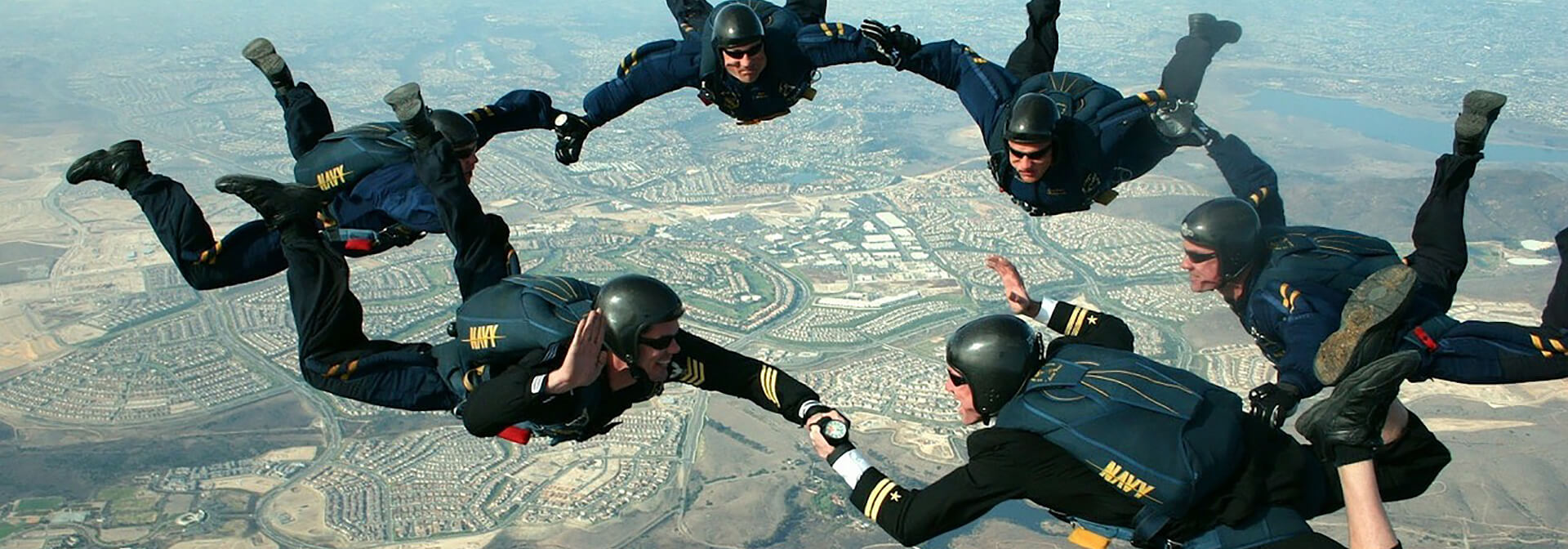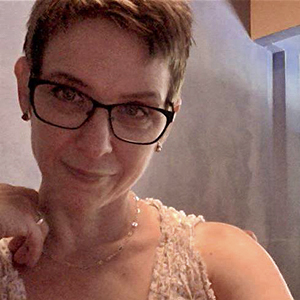Bringing a child into the world was amazing and terrifying. Holding a new life in my arms, I was overwhelmed by feelings of love, protectiveness, devotion and the sudden, jolting realization that I had brought both life and death into the world. After all, we can only promise one thing about life⏤that it will end. His life, my husband’s life, my life are all finite. What could I give him between the entry and exit points on this trip?
No parent outruns these thoughts. We all race to provide enough of a foundation, enough education, enough wisdom to see our children off onto a future we may or may not join. We all feel, from time to time, that we cannot possibly be enough. And if your child has special needs, there is another terrifying thought: “What if they CAN’T make it on their own? What if life claims its promise of us before we can prepare them to make their way, or protect them from those who could harm them if they can’t?”

So we run harder and faster from the fear and towards the hope of help from “experts” and those that came before, hoping that their answers will be THE answer to see us through.
Early on in the “race,” my husband and I started to sense that fear and “hope” were far more the enemy than inadequacy. Our son’s brain is unique. There is no expert who knows him as we do.
What does HIS life look like? What does HE love? What is that thing we are filling in between jumping on and jumping off of this ride? Do we want a life of constant therapy, working to fit into a school system that we don’t see as all that useful, even for typical kids, towards a future we might have wanted for ourselves but that may not be at all useful or happy for him?
It can be hard to walk away from institutions and even well-intentioned friends, family and others “with children like yours” who nearly shout at you that, “you want to do EVERYTHING POSSIBLE for your child, don’t you?? Because look how well it’s worked for other people, and some people don’t even have access to these services, and what if he wants to go to college someday, and I know someone who did this and their child is graduating with honors now, and you have to try gluten-free, chelation, RDI, Dan Protocol, ABA, Special Oils, Occupational Therapy, Speech Therapy, Allergy Testing, or you AREN’T TRYING HARD ENOUGH!”
Enough.

One thing my autistic son is, is very present in his NOW. He is usually happy in his NOW. What if we let go of the supports and the voices telling us what we should be doing and let his strengths, joys and struggles guide us? What would it be like to free-fall? Scary? Of course. But liberating too. Realizing that there is no ONE WAY to do something, that the ride is as different as each brain, is a source of power.
And that may sound lonely, but we’ve found that there are others walking this path, offering friendship and sharing stories, without judgement, to take or leave if it serves us. Groups like Unschooling Special Needs and Homeschool/Unschool Bloggers, and now, The Alliance for Self-Directed Education offer tips and advice. There are blogs by adults on the spectrum that shed light on their personal experiences and what helped or hurt them.
And once you find some like-minded folks, you can even meet some of them in person. Maybe there will be one group that is great for outings, another that has some learning ideas, or life-learning support.
And you will find that the eclectic life you create with your child and family in mind is perfect for you and for them. And you’ll learn to ignore the critics, and those with methodologies too rigid for your needs. You’ll find a community you never knew existed and a life that is nothing like what you imagined because you never imagined what free-falling would feel like⏤glorious, terrifying, surprisingly fun, sometimes disorienting, but FREE.

So, what has my son done with his freedom? He has taught himself Adobe AfterEffects, Sony Vegas Pro, iMovie, VideoPad, Adobe PhotoShop and has begun creating music videos for other musicians. He has perfect pitch and began teaching himself “Toccata and Fugue in D Minor,” after which we got him a music teacher who also directs his band (he plays keyboards, and they’ve recorded 6 original songs). He’s always drawing, so we introduced him to several art teachers, settling on private lessons which have led to his art being featured in an arts festival this year. Involvement with a homeschool-hybrid program has allowed him to fall in love with a Waldorf teacher who uses Greek (one of my son’s passions) to teach Geometry, Greek Literature and Science.
The main difference between our son and non-autistic students is that he doesn’t think about results or ask for new experiences. We have to engage with him, watch him, make offers based on our observations and adjust accordingly. But even though his communication may be weak on asking for things he wants, it increases after he dives deeper into subjects with which he connects.
Every child is different⏤their needs, abilities and desires are all different⏤but all children, typical or autistic, have passions, preferences and the ability to choose. As parents, we need to let go of judgement and expectation and jump fearlessly into the worlds they create.
Allons-y!
If you enjoyed this article and feel called to give back to ASDE, here are ways you can support our work:
- Donate money
- Share our content with others! Click one of the buttons above to easily share on Twitter, Facebook, or email.
- Consider becoming a Contributor for Tipping Points
Tipping Points Magazine amplifies the diverse voices within the Self-Directed Education movement. The views expressed in our content belong solely to the author(s). The Alliance for Self-Directed Education disclaims responsibility for any interpretation or application of the information provided. Engage in dialogue by reaching out to the author(s) directly.






